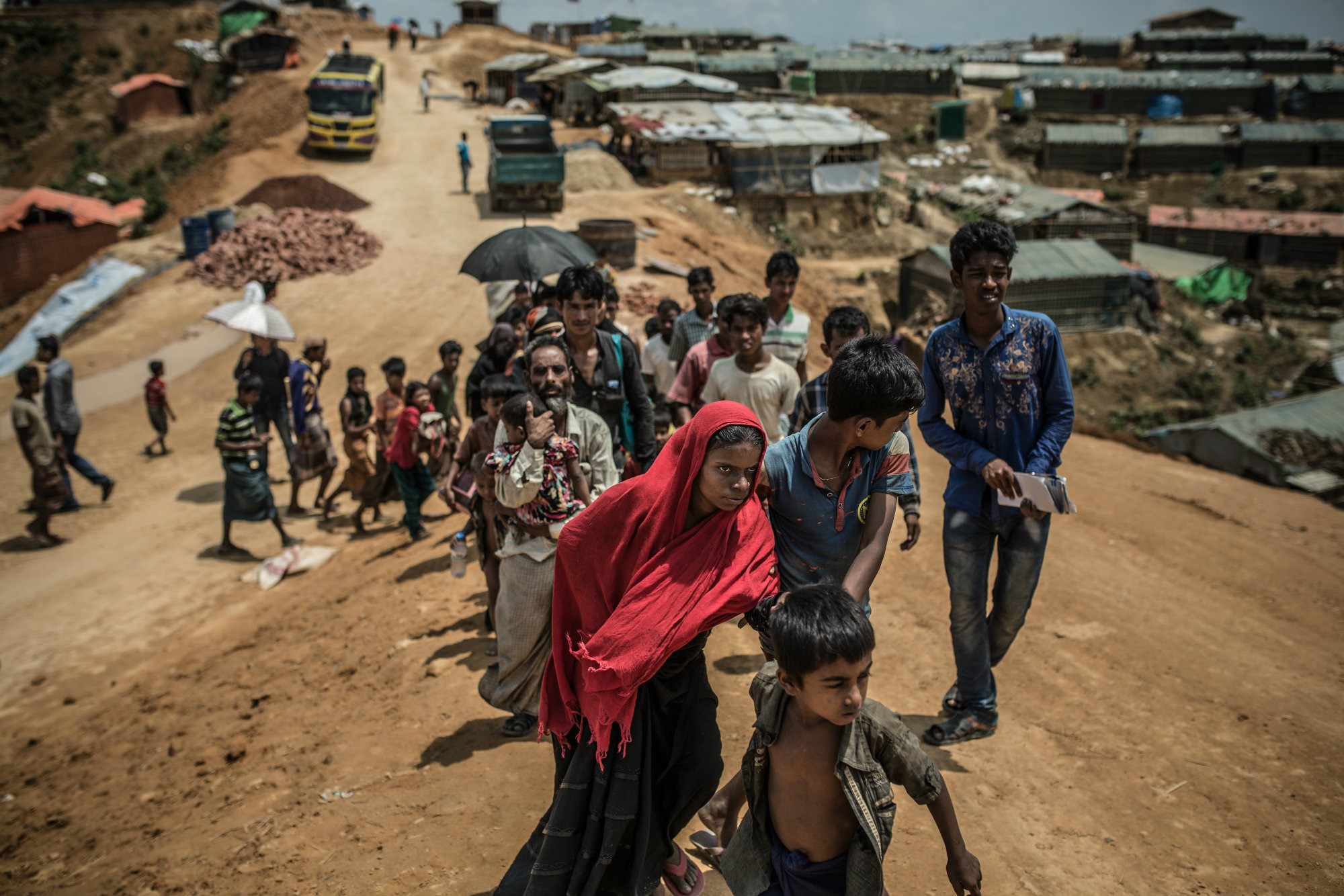By: Aisyah Al Baroroh
(Human Right Observer and a Lecturer at Universitas Pamulang)
Amid the ongoing turmoil in the Middle East, much of the world’s attention has understandably been drawn there. However, there are overlooked areas where human suffering is occurring gradually and without much notice. The Rohingya refugee crisis in Bangladesh falls into this category. Over the years, Médecins Sans Frontières (MSF), also known as Doctors Without Borders, has been a lifeline for Rohingya refugees, providing essential medical services to this vulnerable community. Unfortunately, MSF has now reached a point of crisis in multiple areas, and the ramifications of this situation will have severe and long-lasting consequences for the Rohingya, while also imposing an even greater burden on Bangladesh.
The Rohingya, a persecuted Muslim minority group from Myanmar, have endured decades of violence and oppression in their homeland. Fleeing for their lives, hundreds of thousands of Rohingya sought refuge in Bangladesh. Initially, the international community rallied to support these refugees, with MSF playing a pivotal role in delivering crucial medical care, including maternal health services, surgeries, and treatment for malnutrition and infectious diseases.
Regrettably, the Rohingya crisis has faded from the global spotlight, and the outcomes are distressing. MSF has been compelled to announce a reduction in its services, citing insufficient funding and overwhelming strain on its resources. This disheartening decision comes alongside another concerning development: the World Food Programme’s decision to decrease the value of food vouchers for the Rohingya. Together, these actions signal an impending catastrophe for the refugees.
The immediate consequences of these cutbacks are evident. Reduced access to medical care and diminished food supplies will undoubtedly result in increased suffering, illness, and malnutrition, with women and children being the most vulnerable.
Malnutrition, in particular, is a silent but deadly threat. Even before the recent reductions in food rations, rates of malnutrition among Rohingya children were alarmingly high. Malnutrition not only hinders physical growth but can also lead to lasting cognitive impairments. With fewer available calories, more children will bear the lifelong burdens of malnutrition, which will impede their ability to recover and rebuild their lives when circumstances eventually improve.
However, the long-term effects of these cutbacks are even more disturbing. As MSF’s services diminish, other aspects of the humanitarian response in Bangladesh are also being scaled back. This not only leaves the Rohingya increasingly vulnerable but also places additional strain on Bangladesh, a country already grappling with its own set of challenges.
One of the most critical long-term consequences is the burden on the local healthcare system in Cox’s Bazar, where the majority of Rohingya refugees are concentrated. The local healthcare infrastructure is already stretched thin, struggling to meet the needs of the Bangladeshi population. As MSF reduces its services, additional pressure will be placed on this already fragile system, which could potentially lead to its collapse, affecting everyone in the area.
Furthermore, the Rohingya crisis has had significant political and economic implications for Bangladesh. The Bangladeshi government has displayed remarkable generosity by hosting nearly a million Rohingya refugees, but this has come at a substantial cost. The presence of refugees has strained local resources, including water, land, and infrastructure. As the crisis persists, it poses a threat to social cohesion and stability within the host community, as resources become scarcer and resentment grows.
The lack of international funding and assistance highlights the global community’s failure to address this crisis adequately. It underscores the failure to recognize that humanitarian needs do not vanish just because the world’s attention has shifted elsewhere. The Rohingya refugees are human beings who deserve the same rights and dignity as anyone else on this planet. Their suffering should not be forgotten, ignored, or dismissed.
While Bangladesh has exhibited incredible generosity in hosting the Rohingya, it is imperative that the international community fulfills its role. Humanitarian organizations like MSF should not be compelled to reduce their operations due to insufficient funding. The international community must provide the financial support necessary to ensure the Rohingya receive the essential medical care and nutrition they desperately require. Moreover, it should work toward a lasting solution to the Rohingya crisis, allowing these displaced people to return to their homes in Myanmar, where their rights and safety can be guaranteed.
Failure to take action and show indifference are not viable choices. Every nation has a responsibility to acknowledge the urgency of the situation and offer the necessary assistance to alleviate the plight of the Rohingya refugees. The repercussions of not acting extend beyond the immediate suffering of these vulnerable individuals; they also entail a long-term burden on Bangladesh and the destabilization of the entire region.
The Rohingya crisis represents a colossal human tragedy. The recent reductions in services by MSF and food rations by the World Food Programme serve as a clear warning that the international community cannot disregard. We must unite to address the immediate needs of the Rohingya and actively pursue a fair and enduring solution to this crisis. The world’s moral compass is being tested, and our shared humanity is on the line. Let us step up and provide a lifeline to the Rohingya refugees, bringing an end to their prolonged suffering.



